Change Is Inevitable, Growth Is Optional: How to Change Your Mindset and Create More Success in Your Life

Have you ever wondered how to change your mindset and why you should? Fear of change blocks our happiness, and most people hate change, but after the year of the pandemic, we all have been forced to change how we deal with change...
How to change your mindset when you don’t know you need to change?
 My wife hated our kitchen. It was too small.
My wife hated our kitchen. It was too small.
Only one person could work in there comfortably. There were plenty of cabinets, but they were too high because… I’m tall and I built them. They were great for me, but Charlsa (my wife) had to stand on a stool to reach the top shelves.
Built in a U-shape, I thought the kitchen was efficiently designed until she was at the stove and I was at the sink. A step to the left or right by either of us caused momentary chaos.
But I couldn't see it.
The problem was that I built the house. From cutting the trees to clear the footprint, the working with the digger to put the hole in the ground that became our basement, the laying and stacking of the logs… I built the house.
With a 40-foot drop off the hillside to the 4-acre lake below that I stocked with largemouth bass and bream in the woods on 95 acres of beautiful land, I built the house that sat on the hill.
My identity over the years changed from the guy who flew around the country as a consultant for major corporations to the guy who built his own log home on a unique and secluded piece of paradise isolated from neighbors and the rest of the world.
When people asked me what I did, I responded:
The kitchen wasn’t even on my radar. The house was perfect. The land was perfect. The lake was perfect. The location was perfect. And I built the house.
When someone visited, I couldn’t wait to tell them about my house in this beautiful setting. Even when I tried NOT to tell visitors, it eventually exploded out like a volcano holding back years of pent-up pressure: I built the house.
But after 18 years in the woods...we sold it in May of this year.
By choice.
No one forced me to give it up.
The key was making a complete mindset change
Being aware of what you really want, honoring that, and modifying your actions to give it a chance to blossom is both hard and essential.
Becoming aware of your thoughts and feelings, and acting on those is just the beginning.
In my case, I started noticing a slight pressure every time I took a walk in the woods. (Or more like a climb through the jungle!)
There was a level of guilt that both my wife and I felt when we realized we couldn’t get to the back 40 acres because the trail through the woods was so overgrown.
My first thought was no longer how beautiful the stream was, but that I needed to get back out there with a weed-whacker, or a bulldozer to clear the debris.
But I didn’t have the time and…my back still hurts from the last time I swung an ax.
Instead, Charlsa and I started talking about what we really wanted.
Simplicity kept coming up.
So, we made a tough decision to do something difficult.
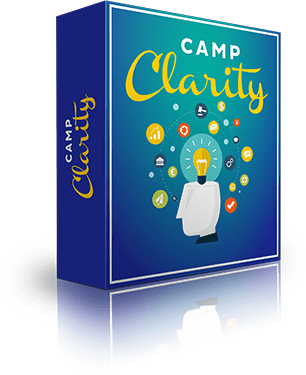
Instead of planning weekends spraying weeds, clearing brush, and cutting back trees hanging precariously over the roof, or fighting (and constantly losing) the constant battle with the carpenter bees, we decided to let someone else pick up the slack.
We both needed a long nap.
But how could we give up our little piece of paradise? And who would I be if I weren’t the guy with his own lake, forest, and log cabin?
There's an old Chinese saying that goes something like this: Discontent is the first step in the progress of a man or a nation.
Luckily for us, I have studied this a lot. In fact, I created a complete training program around this concept. It's called Camp Clarity. And the purpose of this program is to help people - maybe you - discover what they really want in life and how to get it.
Change your attitude, change your life
Charlsa is a realist. She’s very pragmatic, frugal, and responsible.
Me? Dreamer. Risk-taker. Spender. Creative. Mostly responsible.
Making a change was foreign to both of us. For 18 years, we never heard anything but birds and coyotes. We didn’t see any neighbors except when we walked on the mostly deserted country roads for a little daily exercise.
But in a few months, I’ll be 69. That’s almost 70. Even though my mind tells me I’m still 18 and in my prime, the creaking sounds I make getting out of bed demonstrate the reality of time.
While 70 may be the new 50 (hopefully), my body is changing.
Change is inevitable, growth is optional.
We can deny it or resist it, but change is constant.
The ancient philosopher Rumi said, “The moment you accept what troubles you’ve been given, the door will open.”
Sticking my head in the sand and ignoring change is a non-starter. Resisting change leads to a bloody forehead from banging my head against a wall.
Accepting change is the path to contentment.
But when your life goes in a direction that you'd rather not experience, it can be challenging.
Over the past 3 years, my family has experienced a lot of challenges.
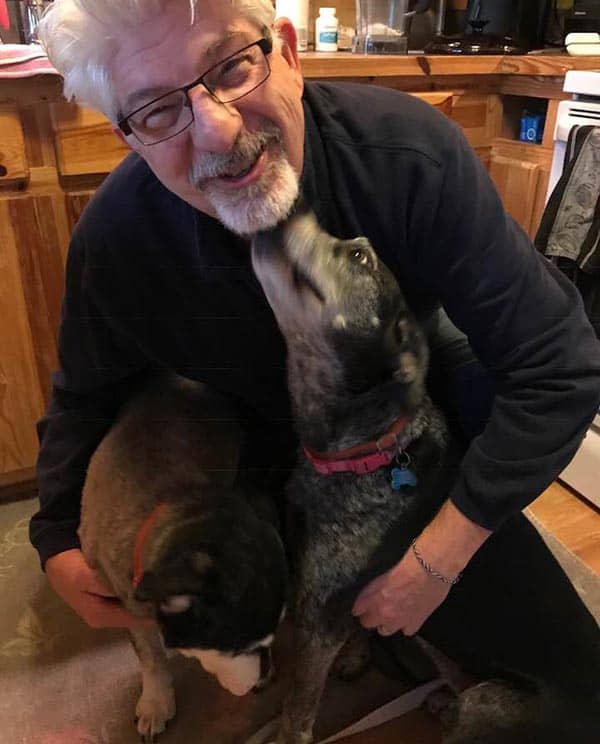
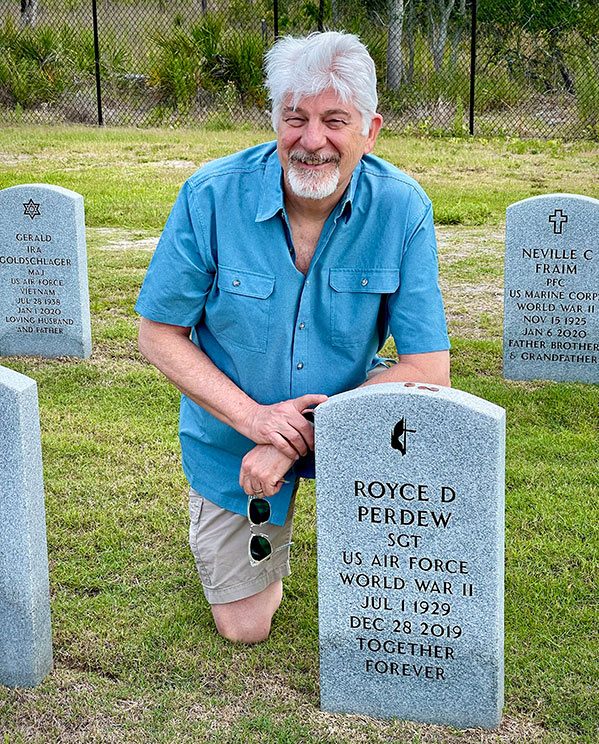
We’re no different from other families. The experiences we go through make us more compassionate, more resilient, and more forgiving of others.
When events like those come upon us like a storm rolling in at night, we try many different ways to get ourselves back on the right track, but nothing seems to work.
Our reactions and perceptions drive how we handle change
There’s truth in the saying, "Life is 1 percent what happens to you and 99 percent how you deal with it." How you deal with life's situations ultimately determines your quality of life.
The attitude you display in any circumstance will inevitably impact the outcome of it. But you're probably wondering, "How else am I supposed to react to a negative event than to feel negative about it?"
A change in attitude can significantly change the outcome of a situation not of your making, or one which you've created all on your own!
Changing your attitude towards life's challenges helps you feel more positive about the challenge as opposed to feeling conquered by it.
When you remember that you have the power to choose your reaction, you'll have the power to determine the outcome of a situation!
If your ultimate goal in life is to be truly happy, stop and take a look at how much control you have over most outcomes. Once you have stopped long enough to realize that only you can determine how happy you feel, you'll automatically start making the choices and attitude adjustments that will help you achieve that happiness!
This is how your change your mindset!
![]() Commit to accepting the change. See it as an opportunity.
Commit to accepting the change. See it as an opportunity.
If it’s a death in the family, grieve. If it’s financial, change your income or expenses. If it’s a career choice, look at your options. If it's your health, make the necessary changes to improve it.
Every little acceptance is a step toward changing your mindset.
Do this consistently and you’ll be on your way to a healthier, more rewarding mindset.
Give yourself enough time. And be realistic.
Choose goals that are achievable.
With a bank account in negative territory, it’s unrealistic to say, “I want to be worth $50 million in five years.”
Start with a goal of $50,000 in six months. That is manageable but still big enough to feel great.
Over the next six months, do this:
- Set four goals. Set a goal in each of the following areas: Financial, Health, Career, and Other. Most of us could use money, health, and a career boost. That leaves one miscellaneous goal.
◦ Financial. You might want to set a goal for your bank account balance, earnings, or pay off your debt.
◦ Health. Need to lose a few pounds? Want to bench press 250 pounds? Follow a healthy diet for six months?
◦ Career. Perhaps you want a promotion, to change companies, or to change fields.
◦ Miscellaneous. You could set a goal to travel somewhere, master a song on the piano, get a jump on learning a language, or buy a new car. Whatever you want.
A good goal is something that you believe is possible but would be challenging. It should also be something that makes you excited when you think about accomplishing it.
- Measure your current situation. Understand where you’re starting. If you want to increase your savings account to $10,000, you’d best know your current balance. The same goes for your weight if you’re trying to lose weight. If you want to run a 5-minute mile, how fast can you run a mile right now?
- Create a plan. Based on where you are, and where you want to go, what is a logical plan to get there? Remember that you have six months and plan accordingly.
- Determine the habits you need to ensure success. If you want to lose weight, your exercise and diet habits are important. Savings and spending habits are often important for financial goals. Sending a certain number of resumes might be important for certain career goals.
Your habits have a tremendous impact on the results you achieve in life. Good habits yield good results.
- Set short-term goals. It’s hard to stay focused on a goal for six months, and it’s easy to procrastinate. Set short-term goals that lead to your long-term goals. Sixty days is about right for a short-term goal.
Set 60-day and 120-day goals for each of your 6-month goals.
- Take action. Even with the best plans in the world, nothing happens until you take action to reach your goals.
- Keep a journal. Record your feelings, plans, ideas, results, and observations. You’ll get a kick out of looking back on your journal someday.
- Measure your progress. Regularly measure your progress. It’s important to know how you’re doing, so you can make any adjustments. How will you know if your diet and exercise plans are working if you never get on the scale?
- Be flexible in your approach. You’re probably not going to create the perfect plan right out of the gate. There will be a lot of fine-tuning along the way. Stick to your goals but be willing to change how you accomplish them.
- Cross the finish line. Giving up is the only way to fail. Keep going, even when you feel like quitting.
You can probably accomplish more in the next six months than you have in the last five years.
It’s easy to fall into a routine that does little more than maintain your current life.
Do this for six months and you’ll discover that this is how to change your mindset.
Now, that you have tackled new goals, give your new habits more muscle!
“The secret of your success is found in your daily routine,” according to leadership guru John C. Maxwell.
What is the first thing you do after you wake up in the morning? Check your phone? Stumble to the coffeemaker? Whatever it is, you might not think twice about it.
Habits are learned behaviors that become a part of your routine over time. They can be subconscious. Both good habits and bad habits are built the same way. They become routine.
Yet some of the most successful people attribute their success to their routine. Those people took time to focus on the good habits and build those into their life.
To change your mindset, you can change your habits. Habits do not have to be large changes in order to have an impact. Small, good habits make a difference too building confidence and more success.
These habits might seem small or insignificant, but they can carry into your life in unexpected ways.
Implement these habits into your routine to change your mindset:
- Make your bed. Starting your day by making your bed is one of the simplest habits to integrate into your daily routine. There’s a reason that soldiers, sailors and airmen start every morning by making a tight and tidy bed. This is an easy win.
That simple accomplishment can subconsciously act as a domino effect as you generate other wins throughout your day.
- Set an intention. At the beginning of your day, set an intention. You can also set intentions for the week, month or year. Setting intentions regularly guides you with a reminder of how you want to live each day.
- Practice gratitude. Studies have shown that when we practice gratitude, our brains release dopamine. Gratitude helps shift your mind to positive thoughts, which can help you feel more positive.
At the end of the day, write down three things you are grateful for to build your gratitude habit.
- Exercise. When you exercise, your body releases chemicals that relieve stress and spark euphoria. In addition to being a natural antidepressant, exercise also builds your confidence. To build your confidence and happiness, make it a habit to exercise each day.
- Express gratitude to others. When you express gratitude towards others, you strengthen the connection you have with them.
Write a thank you letter to a mentor who has guided you in the past or to someone who made an impact on your life.
After you spend time with someone, send them a message thanking them for their time and include one specific thing you loved about that time.
- Read. Just like exercise builds your physical muscles, reading builds your brain’s muscles. Reading consistently builds your ability to focus, concentrate, and remember things.
- Switch to positive language. Practice using positive language, from your self-talk to the things you say to others.
Say, “Thank you for your patience,” instead of, “Sorry for the wait.”
Pay attention to the negative things you say to yourself. Would you speak that way to a friend? Speak to yourself more positively too!
- Take the stairs. In a digital age where most of us are tied to our computers, choose the option that gets you moving! Take the stairs instead of the elevator. When you need to run an errand, walk or bicycle to the shop.
Follow these tips to successfully implement new habits:
- Make each habit timely. For example, “make my bed daily” or “express gratitude to someone else once per week.”
- Avoid long breaks when building a new habit. If you have a habit you want to do daily and you miss one day, do your best not to let yourself miss two days.
- Be compassionate with yourself. If you forget to exercise one day, avoid beating yourself up! Learn to be compassionate and understanding of yourself.
- Find an accountability buddy. You are more likely to stick to your habits if you have someone holding you accountable. Find someone to hold you accountable or support you throughout your journey!
- Reward yourself. Rewarding yourself as you hit milestones will help you enjoy the process.
You don’t have to make drastic changes - like starting a new career - to change your mindset. The small changes habits have in your routine can make a huge impact!
Taking time in the morning to look at my loft window at the deer in the woods, or the ducks chasing each other on the lake, or the hawks flying overhead was a good habit that allowed me to reflect on the changes in my life. It allowed me to make difficult, but responsible decisions that will benefit me later by simplifying my life.
It was the first step to changing my mindset.
Your mindset is everything. Without the right mindset, even taking action can be a waste of time…
So, learning how to change your mindset is the key to becoming a more successful and happy person, no matter what changes come your way.
Remember, change is inevitable, growth is optional.
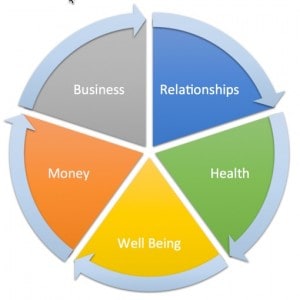
This is where we send all of our new clients. Camp Clarity! If you have been struggling to understand exactly how to build a life that is not only fulfilling but rewarding, this is the place to start.
We focus on 5 areas of stress and help you create systems that improve ALL of them including Business, Relationships, Health, Well Being, and Money.
Tell us in the comments below how you're handling change. And how to change your mindset?
Need help figuring out how to change your mindset?
Try Camp Clarity and you'll discover how to focus on exactly what you want and love!
In Camp Clarity, we attack your brain! Break it wide open and spill out all of your pent-up desires and expertise. And after we sort that all out, you have a complete roadmap to your best life. We dig into:
- Core Values - discover how to make decisions quickly based on your beliefs and goals.
- Vision and Future State - without a clear vision, you don't have a destination. Without a destination, you have no direction.
- Only Statement - what is unique about you and your experience that will help you move forward in every area of your life.
- Guiding Principles - principles that focus your future so clearly that you can never go astray again.
- Execution Plan - follow this process to create an action plan that is very simple.
- and much, much more...
Click here to discover how to create your personal decision framework so that you NEVER make poor decisions again in any area of your life with 6 simple, but incredibly effective modules in less than 30 Days!
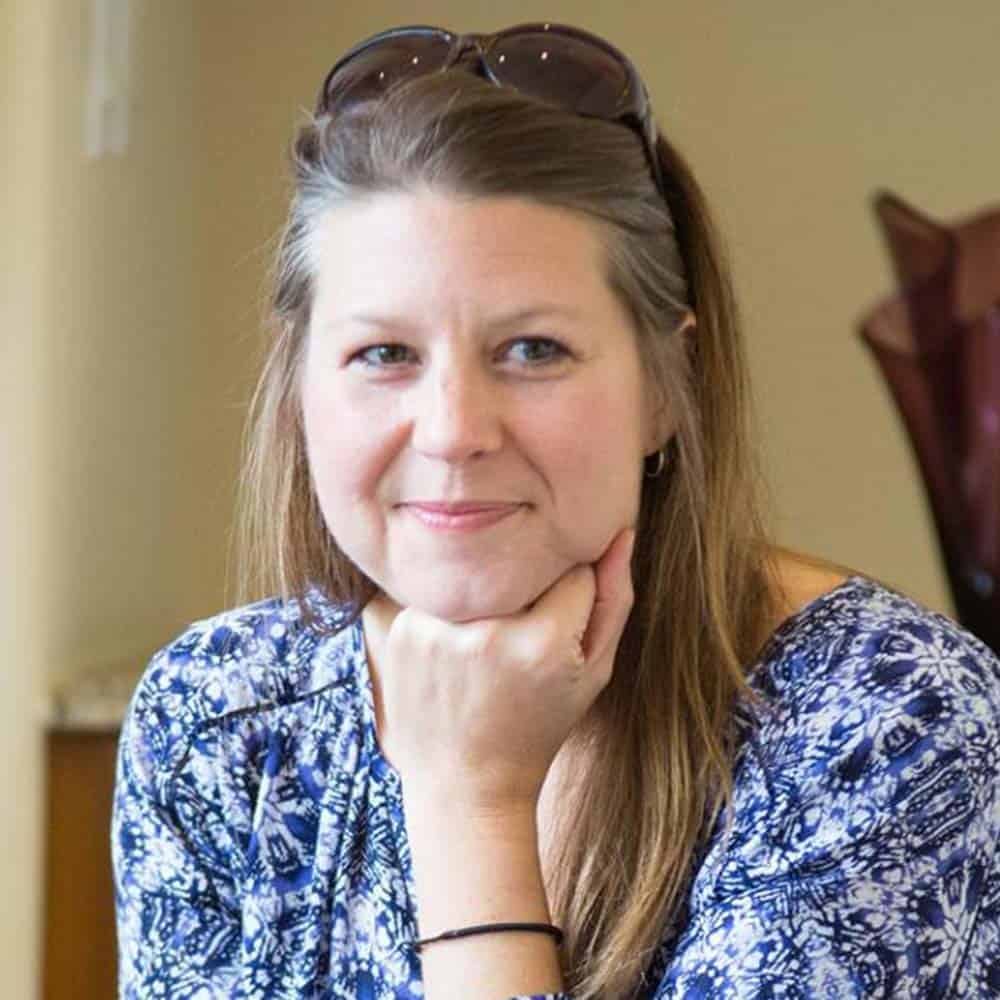
The Novice to Advanced Marketing System is a step-by-step system focusing on Team, Training and Tools to help novice to advanced business people build a Simple, Scalable and Sustainable business.
Founded by David Perdew over 15 years ago, he recently retired and his daughter, Jen Perdew, who has been working at NAMS since 2011 purchased the business.
Jen is now the President and CEO of NAMS and comes from a customer service, operations, and employee training background.
Jen has always loved digging in and getting her hands dirty with automation and coaching. Jen's an implementer and focuses on moving her clients as quickly as possible down the path to success. and has since taken over most of the technical training in the business. NAMS is one of the most successful online communities today, specializing in training and proprietary productivity software tools.











Thanks for sharing, David. Change is good for you.
March last year I resigned from a high-stress job running an inclusion arts festival which I thought would be rewarding, but cost me my health. By the time I left the job end of April, my blood pressure was at an all-time high of 170, my herniated disc had flared up again leaving me unable to even carry a handbag. I made the decision to not just leave my job but Hong Kong, my home town and move to Kuching, Malaysia, to live a simpler life and focus on me. It was the best decision I have ever made. I year on, my blood pressure is back to normal, I have dropped 14 lbs which is half my target, I sleep without nightmares about work. And I am about to launch a new business.
Lesson learnt: if things no longer work for you, take a long hard look and shed. Cut out the non-essentials, the noble notions, whatever is doing you harm.
Excellent Camelia – sounds like you’re back on track. It’s really amazing how we can get so lost pursuing what we think we’re supposed to do instead of what is right for us.
Tell us how you cope with change?
Well expressed article regarding change. I’m your age, navigating similar challenges. Eerily so. You touched chords I felt alone in facing. Thank you and good luck along the path.
Good to know Mike. Hitting this age is nothing like what I thought it would be. Not worse, just beyond my wildest dreams. Different things are important to me now.
I have to admit, it is not the first time I heard these principles. And not the first time I am once again going to try and put them into practice. But this time I like the way you set out the goals. Time for those new habits to begin and take hold.
Roy, repetition is our friend. When we finally get it, we’re ready to take the action. Good luck 🙂
All my life I planned on the life you created for yourself. and living in the woods and working from home there. But in 2005, as I was making plans to do so., my mother had a stroke. It was the first of several. I promised her I would not let her go to a nursing home For the next 10 years, I put my life on hold , and cared for her, mostly by myself. I learned things I never wanted to learn and did things I didn’t think I could do. In 2015 she passed away at home. The next year I injured my hip and had to retire early. I sold my land because I was unable to take care of it So now I work from home, just not the home I planned on.
So I have to ask, what happened with your story. Did you sell the log home. What was your next move.
P.S. Thanks for all you and Jenn do.
Hey Tim – Dreams get postponed sometimes, but we still got ’em 🙂 Hang in there. We did sell our property – all 95 acres and the house. And I have to tell you we are loving a relaxing, low-maintenance townhome right now in a neighborhood while we think about the next home… And it will probably be in the woods again somewhere but on much smaller acreage – 3-5 acres. Peaceful is what we’re after… We had that, but taking care of the property became a burden… Good luck. And thanks for being part of the community. dp
i love your story im jalous david
Don’t be Kurt 🙂 Grass is always greener…